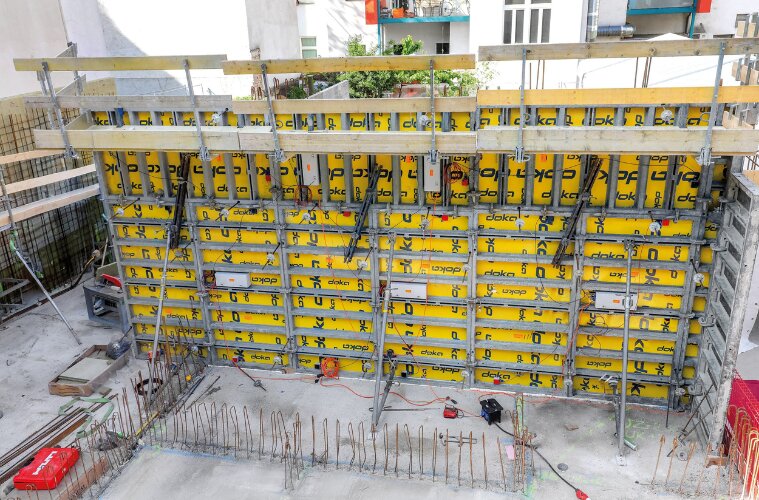Staff writer
Doka, a global leader in formwork and scaffolding, is the first in its industry to join the Science Based Targets initiative (SBTi). This commitment aligns the company with the 1.5°C target of the Paris Agreement and underlines its commitment to reducing greenhouse gas emissions through science-based methods.
The role of construction in global emissions
The construction industry is responsible for approximately 37% of global greenhouse gas emissions, making it a key focus in the fight against climate change. The sector faces increasing regulatory requirements and a growing need for sustainable practices. Doka sees this challenge as an opportunity to make its business models more resilient in the long term.
Robert Hauser, CEO of Doka, emphasized: “The transition to net zero is a complex challenge that requires both ambition and resilience. With our involvement in SBTi, we show that sustainability is serious business. Sustainable practices are key to our customers’ success in a future-proof construction industry.”
Net zero by 2040: A science-based approach
As part of its “Net Zero 2040” strategy, Doka has committed to reducing emissions across its operations and supply chain by at least 42% by 2030. The goals include:
- Scope 1 and Scope 2 emissions: A 42% reduction in emissions from direct operations and purchased energy.
- Scope 3 emissions: A 42% reduction across the supply chain, addressing indirect emissions from the sourcing, transportation and use of products.
These reductions are consistent with SBTi's framework, which helps companies set measurable, science-based climate targets.
Tangible steps towards sustainability
Through a series of concrete measures, Doka is coming significantly closer to its sustainability goals. At its Austrian headquarters, the company relies exclusively on renewable electricity, supported by photovoltaic systems. At the heart of its approach are circular economy initiatives, where formwork is renewed in service centers to minimize waste and extend product life cycles.
Low-CO2 innovations, such as the use of recycled materials and intelligent heating formwork, enable the use of CO₂-reduced concrete in construction projects. In addition, Doka has calculated the Product Carbon Footprint (PCF) for its portfolio of 7,000 products and co-developed industry standards for emissions reporting to ensure transparency and accountability.
